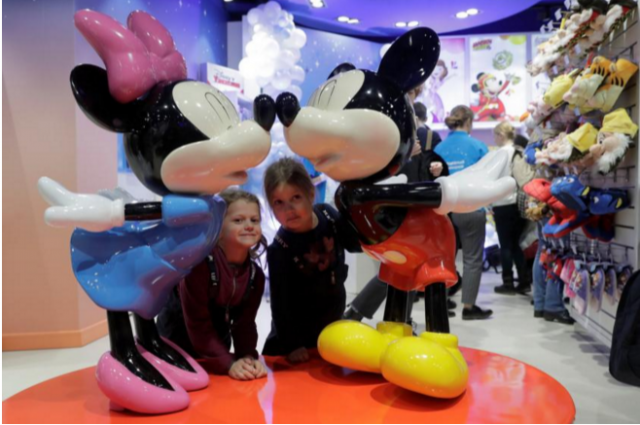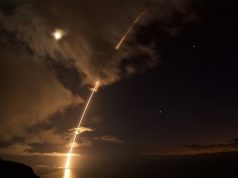
MOSCOW — Though too cold for a theme park, Russia’s underserved toy market makes it an attractive business prospect for Walt Disney Company, the head of its Russian operations said on Friday.
Opening the U.S. group’s first toy store in the country, Marina Zhigalova-Ozkan said it planned at least five more, and was working with local manufacturers to keep prices competitive.
“We think that in Russia there aren’t too many toy shops … and we thought it would be interesting and complementary to what already exists in the market to open our own branded stores together with partners,” she said in an interview.
The new outlet occupies around 300 square meters in the central Moscow children’s department store, alongside British toy retailer Hamleys, which opened two years ago. Three more Disney stores are planned for Moscow, one in St Petersburg and one in Russia’s south this and next year, Zhigalova-Ozkan said.
Disney has teamed up with Russian company Ideas4Retail, which will run the stores and pay a royalty fee to Disney, with the two working together on product range and pricing.
Ideas4Retail also works with Hamleys as well as children-focused brands Imaginarium and Mamas & Papas in Russia.
Unlike Disney stores elsewhere, which also sell clothing and decor, shops in Russia will only sell toys and will represent the Disney, Star Wars, and Marvel franchises.
Disney’s current Russian business focuses on distributing and producing cartoons and movies, and licensing its brands for use on a wide range of consumer goods and in digital content.
It also has a joint venture with Russian company UTH, which owns Disney Channel in the country.
Merchandise for the stores will be supplied by local manufacturers with licensing agreements with Disney, while some will be imported from other countries. Disney has around 300 licensees in Russia, of which 136 manufacture goods in Russia.
Zhigalova-Ozkan said the company had been focusing on localizing production in recent years, and had stepped this up after the rouble fell sharply at the end of 2014.
“Because of the (exchange) rate differences many of the products that we were bringing in became out of reach for the Russian consumer,” she said.
“We have expanded the number of goods we sell at mid prices. We realize that the average spent may be lower but demand for children’s goods does not decline. Children want toys anyway.”
However, Disney has no plans for a theme park in Russia.
“Sadly, it’s cold in Russia. A theme park should work 12 months in a year. And in terms of number of people in Russia unfortunately it’s not very efficient,” Zhigalova-Ozkan said.
Disney does not break down its business figures by countries.









